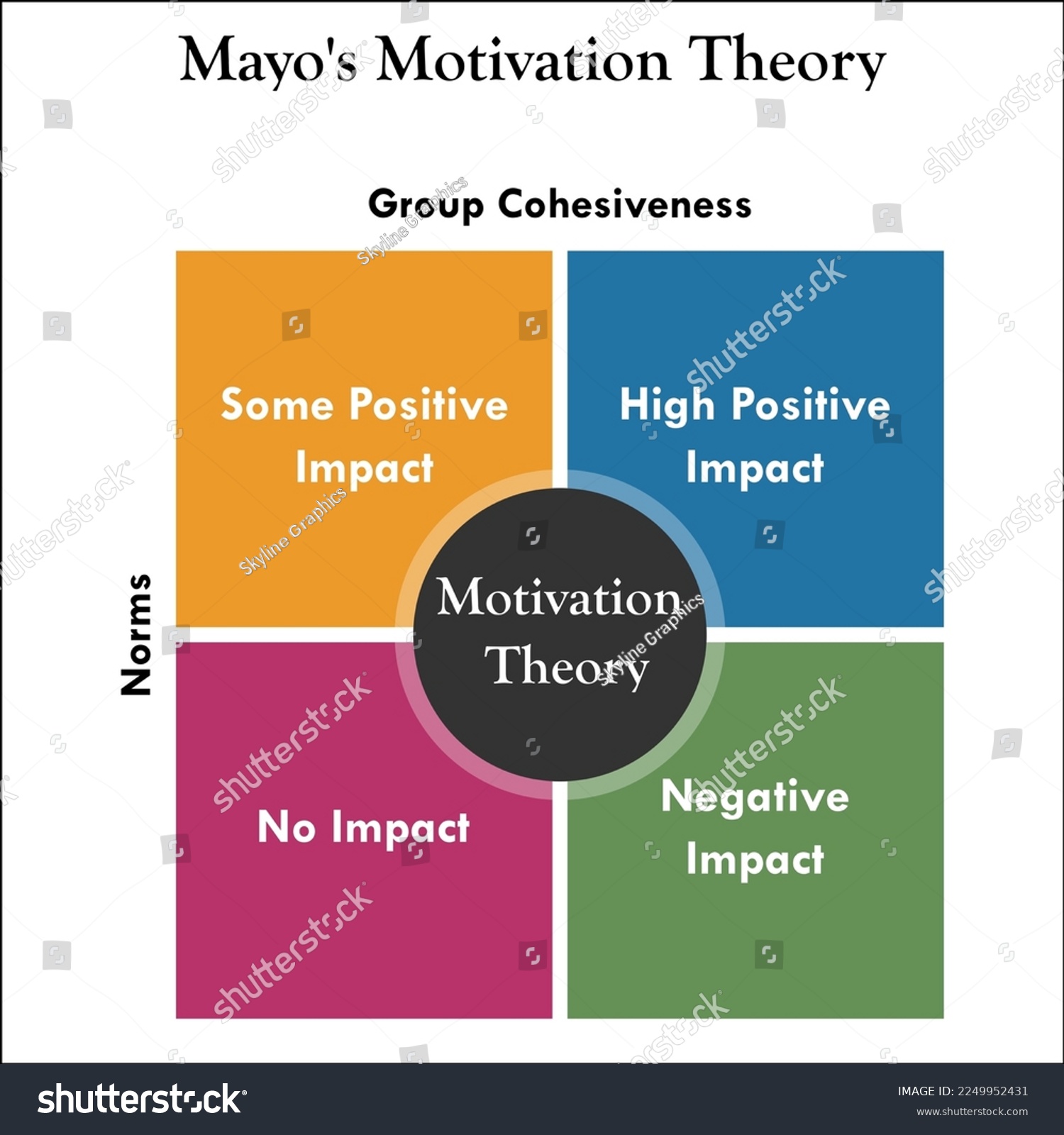
Mayo's Motivation Theory in a Matrix Infographic Royalty Free Stock Vector 2249952431
This paper challenges this orthodoxy and argues that the Human Relations school was in fact a right-wing and decidedly undemocratic innovation that was developed in response to the demand from organized labour that workers be ceded an active and significant part in management decision making.

Maslow's Theory of Motivation Hierarchy of Needs there are five levels... Download Scientific
Mayo's Human Relations Theory was developed by Elton Mayo in the 1930s and focuses on the importance of social factors in the workplace. These include factors such as communication, motivation, and job satisfaction ; Mayo suggests that the key to improving productivity and job satisfaction lies in understanding and improving the relationships between workers, supervisors, and management
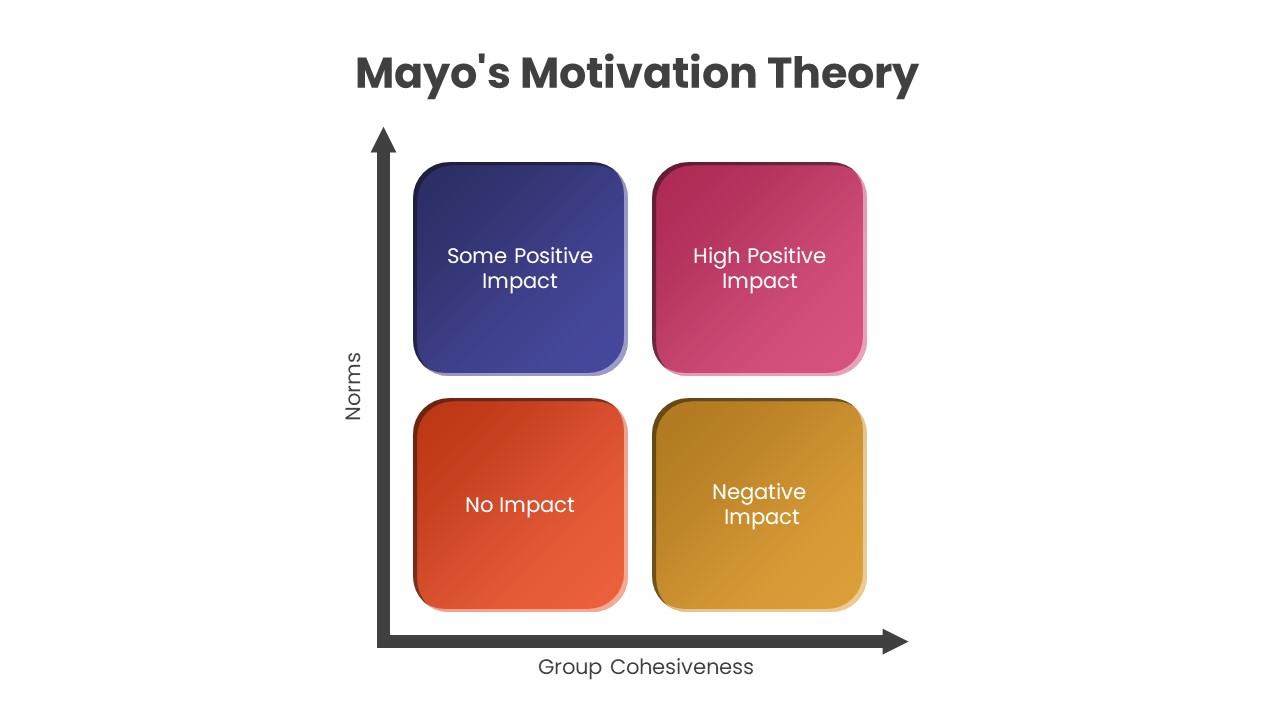
Mayo's Motivation Theory SlideBazaar
Elton Mayo And His Key Theories. Management, according to human relations, is the study of the behavior of employees in the workplace.And this approach of human relations also has its roots in the myriads of experiments which was conducted by the renowned professor, Elton Mayo and his team at the Harvard School of Business, precisely at the Hawthorne plant of Western Electric Company.
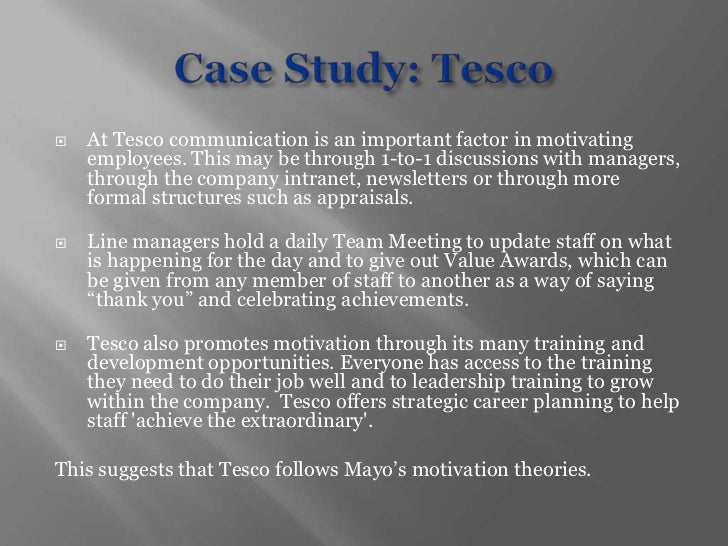
Elton Mayo Motivation Theory Pdf
Broadly speaking, Elton Mayo's management theory promotes the hypothesis that workers are motivated by social and relational forces more than financial or environmental conditions. 1 It holds that managers can increase productivity by treating employees as unique individuals rather than interchangeable cogs in a machine. 2 Many of the theories associated with or popularized by Elton Mayo.
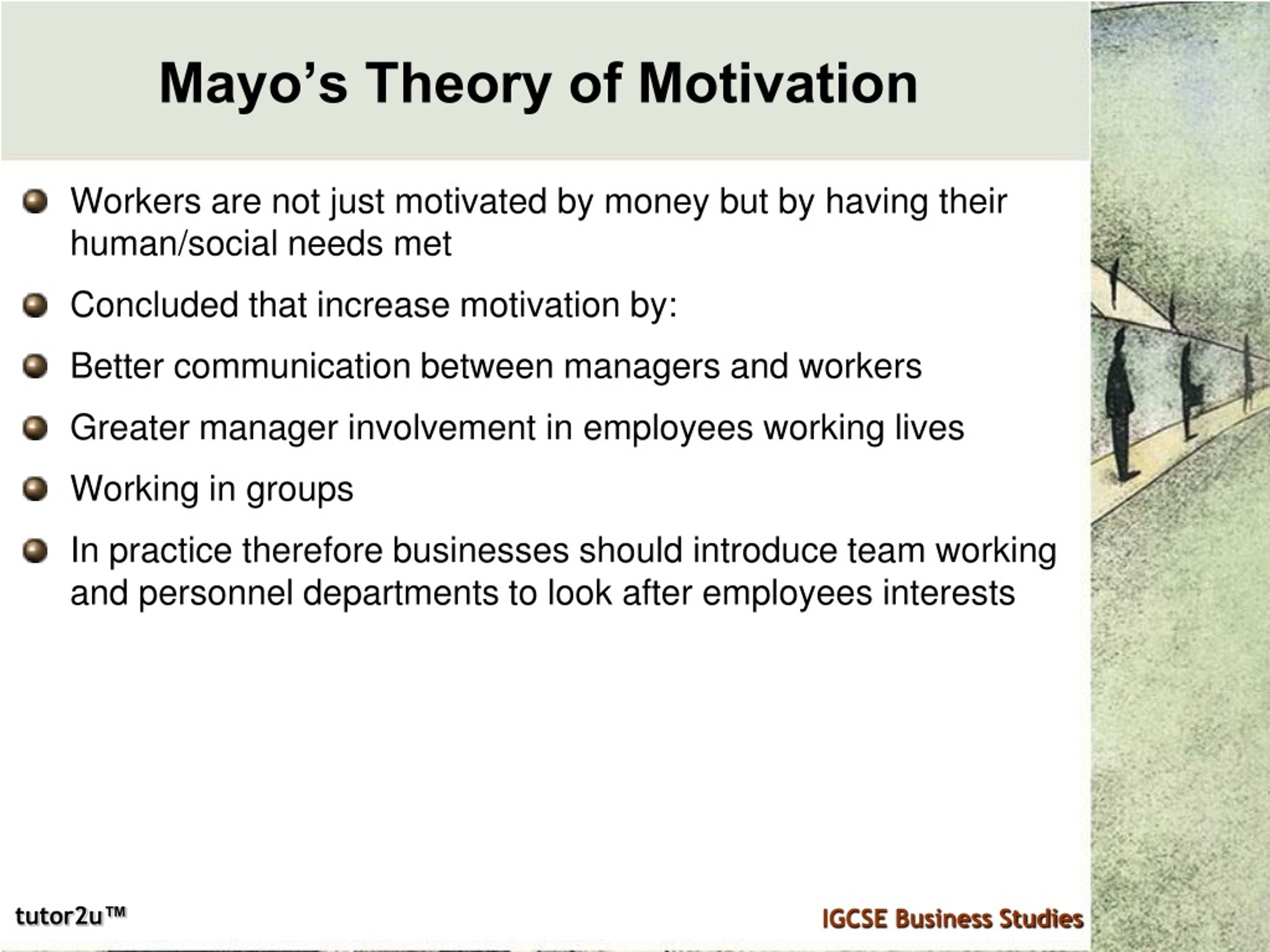
PPT Motivating & Rewarding Employees PowerPoint Presentation ID9106508
In the same way, according to Bruce and Nyland (2011), there is the influence of E. Mayo with the theory of human relations, which defines that group norms more influence the level of production.

HRM Motivating Employees
Mayo introduced the Human Relations School of thought, which focused on managers taking more of an interest in the workers, treating them as people who have worthwhile opinions and realising that workers enjoy interacting together. Mayo concluded that workers are best motivated by: Better communication between managers and workers.

Mayo Motivation Theory YouTube
In Elton Mayo's theory of management, it is proposed that employees are less motivated by money, benefits, or environmental factors. To create a successful workplace, an employer needs to create positive relational factors instead. According to Mayo, employees are motivated more by camaraderie or positive attention than a nice place to work.

PPT Humans Relations and Management PowerPoint Presentation, free download ID2712829
The approach was named after its founder, Elton Mayo. Mayo's management theory highlights the importance of social factors in contributing to job satisfaction. This theory significantly.

Using Mayo’s Motivation Theory to Raise the Performance of Team YouTube
The identification of the Hawthorne effect led to the recognition of the importance of psychological and social factors at work. Further experiments over the next five years revealed that human factors played a large role in workplace motivation and productivity. Researchers manipulated factors like break times, pay, and the type of supervision.

Mayo Human Relation Theory YouTube
In expectancy-value theory, motivation is a function of the expectation of success and perceived value. Attribution theory focuses on the causal attributions learners create to explain the results of an activity, and classifies these in terms of their locus, stability and controllability. Social- cognitive theory emphasises self-efficacy as the.
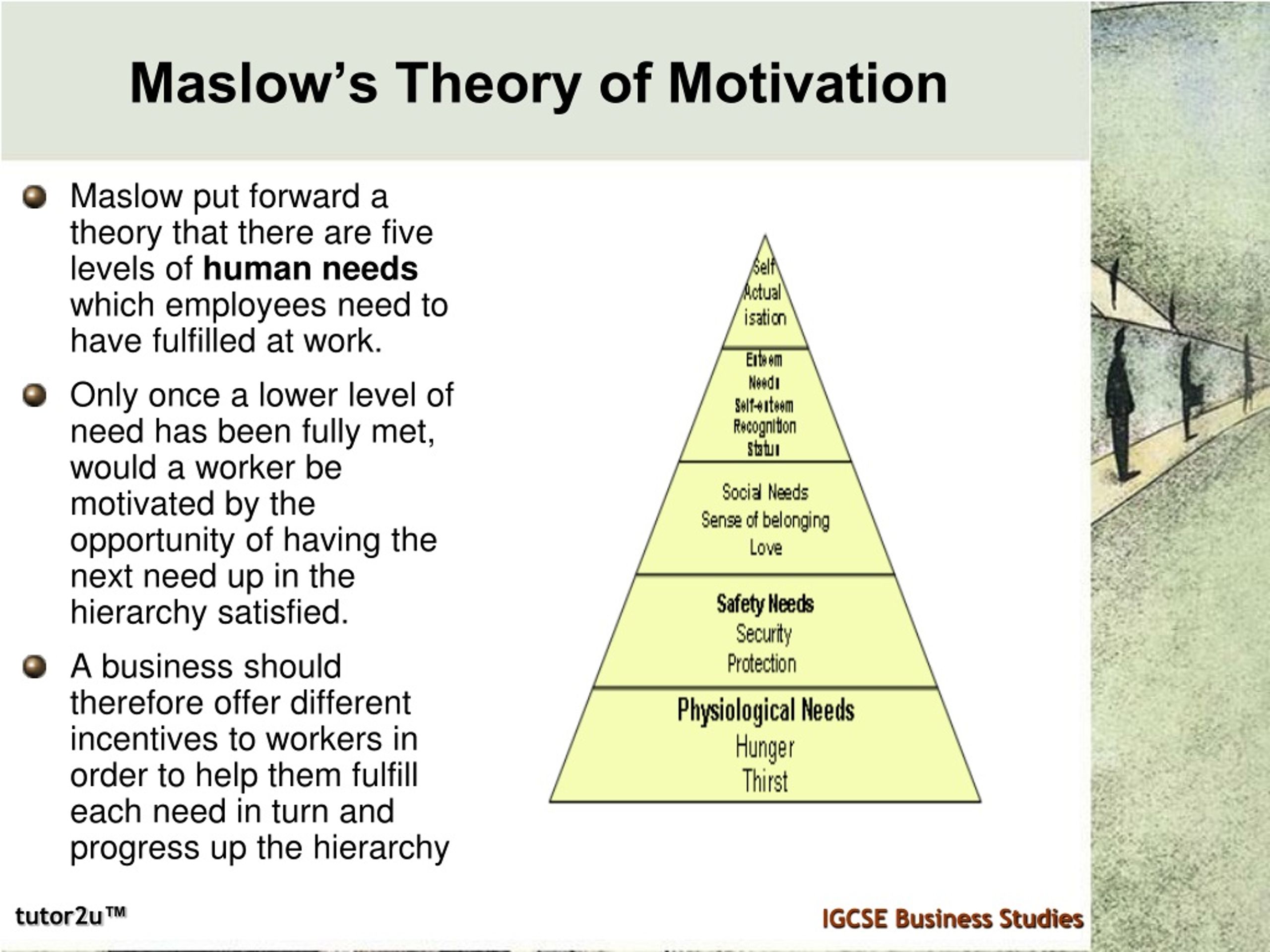
PPT Motivating & Rewarding Employees PowerPoint Presentation ID9106508
Mayo's Motivation Theory, containing the Hawthorn Effect, led to the Human Relations School of thought. This highlights the importance of managers taking more interest in their employees. Mayo believed that both social relationships and job content affected job performance. Who Was Elton Mayo? Elton Mayo was born in Australia in 1880.

Mayo's Hawthorne Effect Motivational Theory Employee Motivation YouTube
Purpose Elton Mayo was a professor at a prestigious university, but not a researcher; a scholar, but more concerned with executives; a capitalist, but someone who downplayed monetary incentives.

Motivation Theory Elton Mayo
Motivating employees is a fundamental challenge for businesses. While monetary incentives have long been believed to be the primary motivator, Elton Mayo, a renowned motivational theorist, challenged this notion. Mayo's Human Relations School of Thought emerged from his groundbreaking Hawthorne Studies, which shed light on the complex factors influencing employee motivation.

Mayo's Motivation Theory Hawthorn Effect. Motivation Training PDF Motivational Motivation
Elton Mayo (born Dec. 26, 1880, Adelaide, Australia—died Sept. 7, 1949, Polesden Lacey, Surrey, Eng.) Australian-born psychologist who became an early leader in the field of industrial sociology in the United States, emphasizing the dependence of productivity on small-group unity. He extended this work to link the factory system to the larger.

Mayo's Motivation Theory Hawthorn Effect. Motivation Training. Motivation theory, Workplace
George Elton Mayo (26 December 1880 - 7 September 1949) was an Australian born psychologist, [1] [2] [3] industrial researcher, and organizational theorist. [4] [5] Mayo was formally trained at the University of Adelaide, acquiring a Bachelor of Arts Degree graduating with First Class Honours, majoring in philosophy and psychology, [4] and.
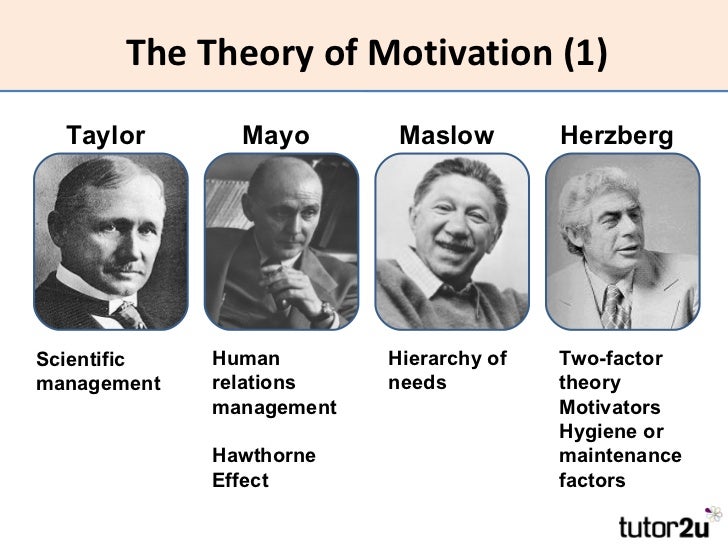
HRM Motivating Employees
The Mayo motivation theory, also known as the Hawthorne effect or Hawthorne studies, is a theory developed by Elton Mayo and his colleagues during the 1920s and 1930s. It is a theory of human motivation in the workplace that focuses on the social and psychological factors that influence employee performance and job satisfaction.